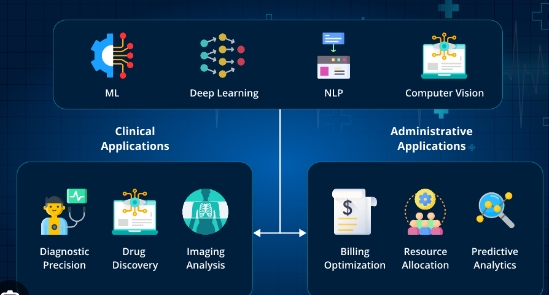In recent years, artificial intelligence (AI) has been rapidly transforming various industries, and healthcare is no exception. AI companies are revolutionizing the way healthcare is delivered, making it more efficient, personalized, and accurate.
Improving Diagnosis and Treatment
AI algorithms can analyze vast amounts of data, such as patient records, medical images, and research papers, to assist in diagnosing diseases and developing personalized treatment plans. This not only saves time for healthcare providers but also improves accuracy and outcomes for patients.
Enhancing Patient Care
AI-powered solutions can help healthcare providers monitor patients remotely, identify patterns in their health data, and provide proactive, personalized care. This enables early intervention, reduces costly hospital readmissions, and ultimately improves patient outcomes.
Streamlining Administrative Tasks
AI technologies can automate routine administrative tasks, such as medical coding, billing, and appointment scheduling, allowing healthcare providers to focus more on patient care. This improves efficiency, reduces costs, and enhances overall patient satisfaction.
Optimizing Drug Discovery and Development
AI companies are using machine learning and data analytics to accelerate drug discovery and development processes. By analyzing vast amounts of data, AI can identify potential drug candidates, predict their effectiveness, and streamline clinical trials, ultimately bringing new treatments to market faster.
Challenges and Opportunities
While AI offers numerous benefits to the healthcare industry, there are also challenges to overcome, such as data privacy concerns, regulatory issues, and the need for continued education and training for healthcare professionals. However, with the right strategies in place, AI companies have the opportunity to revolutionize healthcare and improve the lives of patients around the world.
In conclusion, artificial intelligence companies are leading the charge in revolutionizing healthcare by improving diagnosis and treatment, enhancing patient care, streamlining administrative tasks, and optimizing drug discovery and development. With the potential to transform the industry, AI offers exciting opportunities for innovation and improved outcomes in healthcare.

